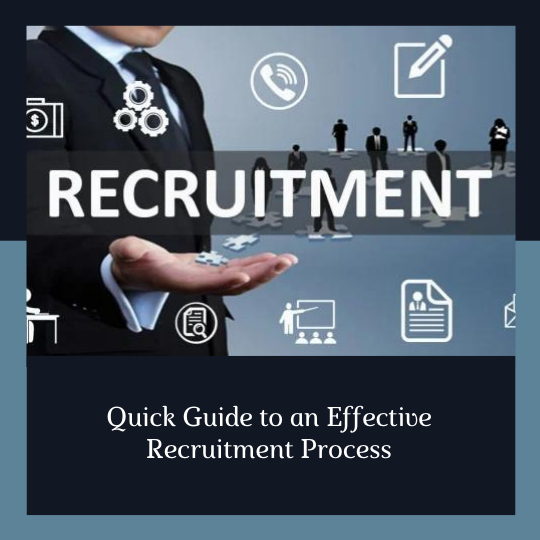Introduction: Effective recruitment is crucial for building a successful and dynamic team. A well-organized recruitment process ensures that your organization attracts and hires the best talent available. Here’s a quick guide to help you streamline and optimize your recruitment process.
- Define Clear Job Requirements:
- Start by clearly defining the roles and responsibilities of the position you’re hiring for.
- Outline the skills, qualifications, and experience necessary for success in the role.
- Clearly communicate the company’s values, culture, and expectations to potential candidates.
- Create Compelling Job Descriptions:
- Craft engaging and accurate job descriptions that highlight the unique aspects of the position.
- Use inclusive language to attract a diverse pool of candidates.
- Clearly state the benefits and opportunities for professional growth within the organization.
- Utilize Multiple Sourcing Channels:
- Leverage a variety of platforms to reach a broad audience, including job boards, social media, industry-specific forums, and networking events.
- Encourage employee referrals as they often bring in candidates who are a good cultural fit.
- Implement an Efficient Application Process:
- Simplify the application process to avoid deterring qualified candidates.
- Ensure that your application platform is mobile-friendly.
- Request only essential information initially to speed up the initial screening.
- Screen Resumes Effectively:
- Develop a standardized resume screening process to efficiently shortlist candidates.
- Look for relevant experience, skills, and achievements that align with the job requirements.
- Pay attention to gaps in employment and assess the candidate’s career progression.
- Conduct Structured Interviews:
- Design a set of consistent interview questions based on the job requirements.
- Incorporate behavioral and situational questions to gauge a candidate’s problem-solving skills and cultural fit.
- Include various interviewers to gather diverse perspectives.
- Utilize Skills Assessments:
- Implement practical skills assessments or tests to evaluate a candidate’s abilities.
- These assessments could include technical tasks, writing samples, or other job-specific exercises.
- Ensure the assessments align with the actual responsibilities of the role.
- Check References Thoroughly:
- Contact references provided by the candidate to gain insights into their work ethic, reliability, and teamwork.
- Ask specific questions about the candidate’s performance and accomplishments in previous roles.
- Maintain Transparent Communication:
- Keep candidates informed about the stages of the recruitment process.
- Provide feedback, whether positive or constructive, to candidates after interviews or assessments.
- Clearly communicate the timeline for decision-making.
- Streamline the Decision-Making Process:
- Create a structured evaluation system to compare candidates objectively.
- Involve key stakeholders in the decision-making process to ensure diverse perspectives.
- Aim for a timely and efficient final decision to secure top talent.
- Onboarding and Integration:
- Develop a comprehensive onboarding process to help new hires acclimate quickly.
- Assign a mentor or buddy to assist new employees in their initial weeks.
- Continuously seek feedback on the recruitment and onboarding process for continuous improvement.
By following these steps, you can create an effective recruitment process that attracts, selects, and onboards the best candidates for your organization’s success.

